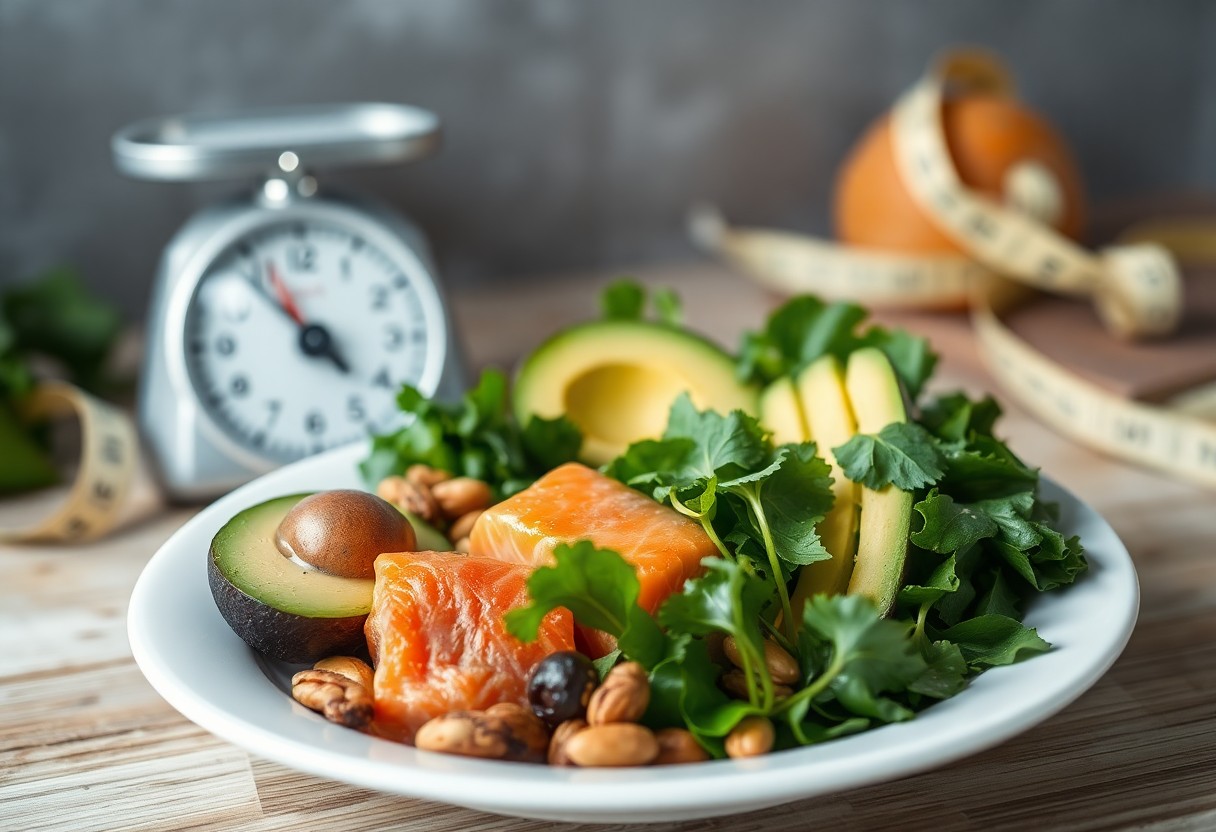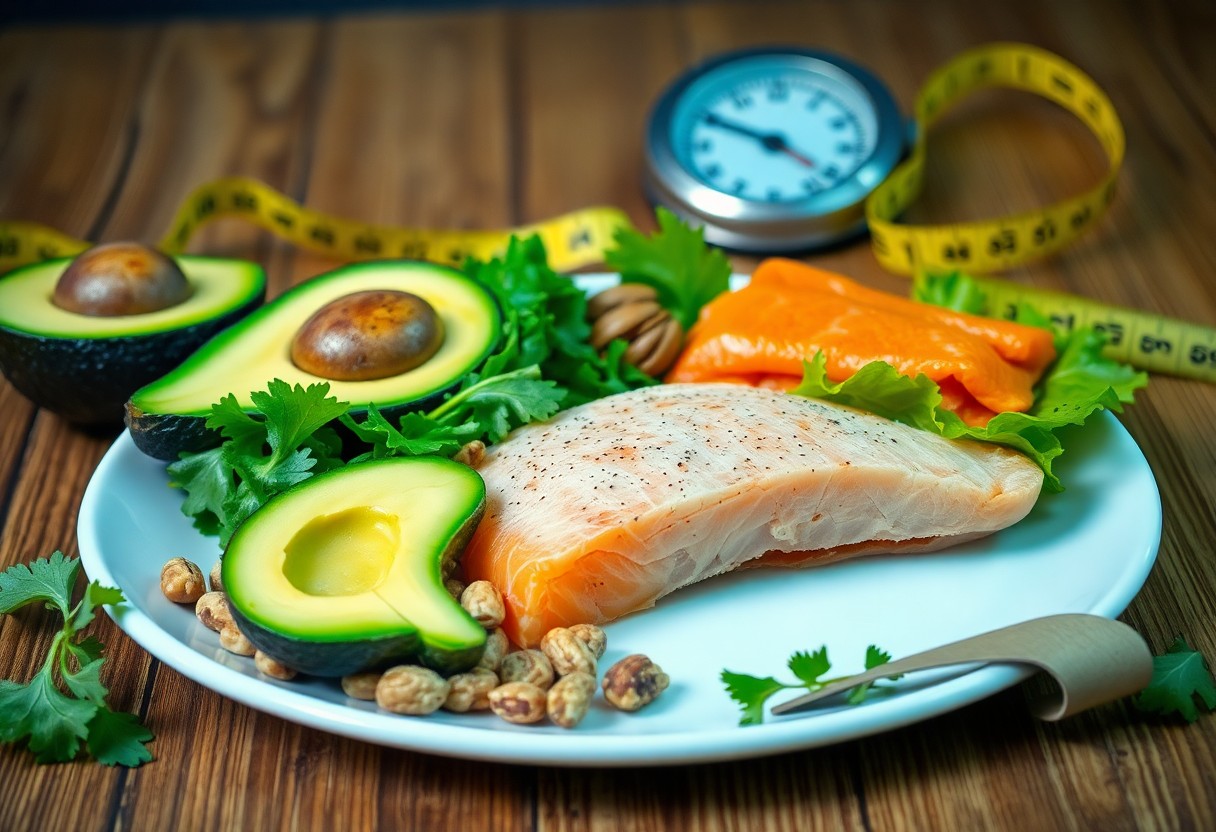Weightloss on the Keto diet can be incredibly effective, but you may encounter challenges that hinder your progress. By avoiding these five common mistakes, you can enhance your results and achieve your goals more quickly. Many people unknowingly sabotage their progress with missteps related to food choices, portion sizes, and understanding how your body reacts to carbs. This post will guide you through these pitfalls, empowering you to make smarter decisions and unlock the full potential of your Keto journey.

Key Takeaways:
- Inadequate Protein Intake: Ensure you consume enough protein to maintain muscle mass while on the keto diet.
- Neglecting Nutrients: Focus on including a variety of low-carb vegetables to avoid nutrient deficiencies.
- High Carb Snacks: Avoid reaching for high-carb snacks that can quickly derail your progress.
- Disregarding Macros: Monitor your macronutrient ratios closely to stay in ketosis for optimal fat burning.
- Not Drinking Enough Water: Stay hydrated to support metabolic functions and enhance weight loss.
- Giving Up Too Soon: Weight loss may take time; be patient and stick with the diet for best results.
- Ignoring Exercise: Combine the keto diet with a regular exercise routine for more effective weight loss.
Understanding the Keto Diet
For anyone commenceing on the keto journey, it’s imperative to grasp the fundamentals of this low-carb, high-fat diet. By dramatically reducing your carbohydrate intake and replacing it with fats, your body enters a state called ketosis, where it becomes efficient at burning fat for energy. This metabolic shift can lead to significant weight loss and numerous health benefits.
What is the Keto Diet?
Along with promoting weight loss, the Keto diet alters how your body sources energy. By drastically lowering carbs, your body relies on fats instead, converting them into ketones which fuel your brain and body. This switch can help curb hunger and improve mental clarity.
How Keto Affects Weight Loss
Any shift to a Keto lifestyle can have profound effects on your weight loss journey. As you lower your carb intake, your body begins to shed water weight and may improve insulin sensitivity, which can help reduce cravings. However, it’s vital to ensure that the fats you consume are healthy, as this will significantly impact your overall results.
Plus, the Keto diet enhances your body’s ability to burn fat via ketosis, allowing you to tap into your fat reserves for energy. While this can promote faster weight loss, you must be cautious about consuming high-quality fats to prevent potential health risks. Additionally, not adhering to the right macros can lead to weight loss plateaus. Focus on maintaining a balance of healthy fats, moderate protein, and minimal carbs to optimize your weight loss and sustain energy levels throughout your day.
Mistake #1: Neglecting Macronutrient Ratios
You may find yourself losing motivation on the keto diet if you neglect the right macronutrient ratios. A common mistake is not consuming the appropriate balance of fats, proteins, and carbohydrates, which can derail your progress. For optimal results, you should aim for about 70-75% of your calories from healthy fats, 20-25% from protein, and 5-10% from carbs. Keeping your ratios in check helps maintain ketosis, ensuring your body burns fat efficiently. Focus on your macros to achieve faster weight loss results and stay on track.

Mistake #2: Consuming Hidden Carbs
Some of your favorite foods might be harboring hidden carbs that can derail your keto progress. Items like sauces, dressings, and even some vegetables pack more carbohydrates than you realize. It’s important to check food labels and choose ingredients wisely to ensure they align with your dietary goals. Focus on whole foods, and prioritize low-carb options to keep your net carbs in check. By doing this, you’ll promote faster weight loss results and stay in ketosis more effectively.

Mistake #3: Skipping Meals or Undereating
If you think skipping meals will accelerate your weight loss on the keto diet, you might be making a serious mistake. Undereating can lead to nutrient deficiencies and slow down your metabolism, hindering your progress instead of helping it. Your body needs a consistent intake of healthy fats and proteins to stay in ketosis and maintain energy levels. Prioritize balanced meals that satisfy your hunger and keep you fueled throughout the day. Proper nourishment will not only support weight loss but also enhance your overall health and well-being.
Mistake #4: Not Staying Hydrated
After starting the keto diet, failure to stay hydrated can hinder your progress and even lead to unwanted side effects. As your body shifts to burning fat for fuel, it tends to excrete more water and electrolytes. This can result in dehydration symptoms such as fatigue, headaches, and muscle cramps. To support your weight loss journey, make it a priority to drink plenty of water throughout the day. Incorporating electrolytes into your routine can also help maintain balance and improve overall well-being while on keto.
Mistake #5: Overlooking Nutrient-Dense Foods
Your focus on high-fat foods should never come at the expense of nutrient density. While it’s easy to indulge in low-carb snacks and processed options, doing so can lead to nutrient deficiencies that hinder your weight loss journey. Prioritize foods like leafy greens, avocados, and fatty fish to ensure you’re getting imperative vitamins and minerals. By incorporating a variety of nutrient-dense foods, you not only support your overall health but also enhance your weight loss results on the keto diet.
Conclusion
As a reminder, avoiding these five common mistakes can significantly enhance your keto diet experience and help you achieve faster weight loss results. By steering clear of high-carb snacks, not tracking your macros, neglecting hydration, skipping meals, and failing to adapt your meal plans, you set yourself up for success. Stay informed and proactive in your approach, and you’ll be well on your way to reaching your health and fitness goals more effectively.
FAQ
Q: What are some common mistakes people make when starting the keto diet?
A: One common mistake is not properly tracking macronutrients. Many individuals jump into the diet without understanding the right balance of fats, proteins, and carbohydrates. This can lead to either not entering ketosis or not experiencing optimal weight loss. Additionally, some forget to incorporate enough fiber, which is vital for digestive health on a low-carb diet.
Q: Is it a mistake to only focus on high-fat foods?
A: Yes, solely focusing on high-fat foods can be misleading. While fats are the primary source of energy on the keto diet, it’s important to choose healthy fats and not overindulge in unhealthy options. Relying too heavily on processed fats or saturated fats without considering protein and fiber intake can lead to imbalances and hinder weight loss progress.
Q: Why is meal prep important for the keto diet?
A: Meal prep is vital on the keto diet to avoid impulsive eating and maintain control over your macronutrient intake. Without planning, individuals are more likely to reach for high-carb options, especially when hunger strikes. Preparing meals in advance helps ensure that you have keto-friendly options readily available, contributing to better adherence to the diet.
Q: Can overeating healthy keto foods hinder weight loss?
A: Absolutely. While healthy fats and keto-approved foods are beneficial, they are still calorie-dense. Overconsumption, even of healthy foods, can lead to a calorie surplus, which may stall weight loss. Portion control is vital, so it’s important to be mindful of quantities while focusing on the quality of the foods consumed.
Q: Should I avoid all carbohydrates completely on keto?
A: No, complete avoidance of all carbohydrates is not necessary. The keto diet allows for a limited intake of carbs, primarily from non-starchy vegetables, nuts, and seeds. These sources not only provide vital nutrients but also aid in maintaining good digestive health. It’s important to find a balance without exceeding your carb limit.
Q: Is it a mistake to skip exercise while on the keto diet?
A: Skipping exercise can slow down your weight loss journey on the keto diet. Physical activity is vital for boosting metabolism and supporting overall health. Engaging in regular exercise can aid in maintaining muscle mass, enhance fat-burning, and improve mood, all of which contribute to better weight loss results.
Q: How important is hydration on the keto diet?
A: Hydration is extremely important on the keto diet. When transitioning into ketosis, the body tends to lose a significant amount of water and electrolytes, which can lead to dehydration. Ensuring adequate fluid intake can help alleviate potential side effects and support overall health. Adding electrolytes such as sodium, potassium, and magnesium can further aid in maintaining balance and enhancing results.


